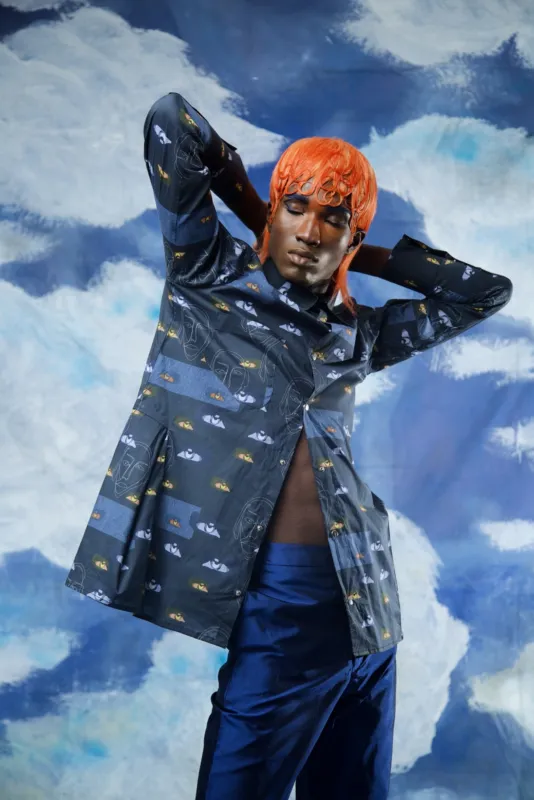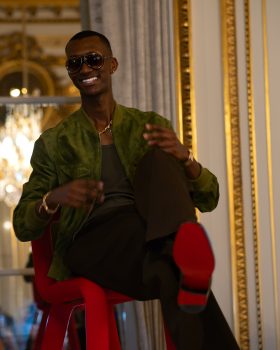The influence of Africa and its fashion has redefined the geography of the global fashion industry in recent years. African designers are connecting with global consumers by tapping into their cultural roots when designing collections. There is a strong tradition of craftsmanship and textile heritage and a strong cadre of emerging and established designers. however, the industry needs a stringent financial organisational structure and strategic mentorship in order to attract venture capitalists to invest in African fashion and its homegrown talent. This is where fashion associations play an integral role in nurturing, developing and supporting African fashion. Let’s take a look at some of the fashion associations working to develop the demand for African designs and textiles within and beyond the continent.
Kenya Fashion Council
Kenya, a major economic hub of East Africa, rich in culture and skilled fashion designers, is sadly poorly integrated into the global fashion industry. The Kenya Fashion Council is a result of collaborative consolidation of multi-stakeholders within the Kenyan Fashion Industry with the aim to further the interests of the Kenyan fashion industry on the global fashion landscape. It works collaboratively with Fashion designers, Institutions teaching Fashion Design, Textiles, Production, Media in Fashion and legal professionals within the industry and the Government to create a functional Kenyan fashion industry. The council endeavours to be part of policymaking in the fashion industry; build opportunities for local and international alliances; create a hub for industry insights and resources; develop or enhance business collaborations for growth; and provide opportunities for showcasing and retailing products to local and overseas markets.
Nigeria Fashion Council
Founded as a special interest group for Nigerian fashion, not-for-profit organisation Nigeria Fashion Council is a platform for Nigeria fashion brands; an independent organisation created by and for the Nigeria fashion industry with the purpose of bringing together, supporting, promoting and growing Nigerian fashion, particularly homegrown talent who are ready to expand across borders, but lack the opportunity to do so. The council aims to promote and establish Nigeria fashion as a cultural and economic asset by supporting young and established Nigerian talent through partnerships with corporate, government, education, industry and community networks . Nigeria Fashion Council also provides national and international platforms for Nigerian fashion designers and brands to showcase their talent through impactful fashion initiatives such as Lagos Fashion Week, Lagos Showrooms and Nigeria Fashion Awards.
Cape Town Fashion Council
Registered as an industry association in 2006, not-for-profit Cape Town Fashion Council represents, develops, supports and grows its fashion sector. The Council represents over nine hundred members including local fashion brands and industry stakeholders within the Clothing and Textiles value chain and its strategic goals are to develop and support the fashion industry in the Western Cape so that local fashion designers grow their market share. Key services of the Cape Town Fashion Council include a Fashion Industry Development Programme to facilitate and provide relevant industry information and research; facilitate links with key stakeholders in the industry to invest in emerging fashion talent; network and market to increase industry visibility on the global fashion landscape; advocate and develop policies. Cape Town Fashion Council provides several services to the fashion community. Its online marketplace ‘Fashion Closet‘ is a one-stop solution for fashion designers to retail their products online in a collaborative environment. ‘Fashion Cluster‘ hosts Accelerated Reboot Classrooms for fashion businesses to offer the opportunity to rebuild, restructure, and reassess business operations post- pandemic. Lastly, ‘Cultivate‘ is a digital classroom where fashion designers can meet and learn from industry stakeholders.
South African Fashion Council
Founded in 2012, not-for-profit South African Fashion Council, funded by the Department of Trade and Industry, utilises existing opportunities in the region to grow fashion brands, to grow retail market share and to use fashion as a catalyst for job creation and poverty alleviation. The council also recognises and reduces the challenges that exist around market access, brand exposure, raw material availability, production processes, skill sets, education and export opportunities with the vision, “Together we can make South African Fashion a dynamic leader for the continent and a force to be reckoned with globally.” The council aims is to develop the South African fashion industry in conjunction with its stakeholders including fashion designers, retailers, design houses, manufacturers, educational institutions, regional fashion councils, organised labour, national government and the fashion media.
Afro Fashion Association
Based in Italy and Cameroon, volunteer-driven not-for-profit Afro Fashion Association promotes diversity and inclusion in fashion, design, art, and culture and advances Africa’s identity rooted in its creativity, culture and innovation. Its events and services provide an international platform to showcase and support the work of emerging African, Afro descent, and Afro-inspired designers. With a database of around 1400 registered Afro designers, the association has a network of fashion influencers, fashion designers, and other industry professionals in Italy. Overall, the association aims to support emerging designers and elevate established fashion designers. Its multi-pronged approach to talent cultivation and support comprises fashion shows, trade fairs and exhibitions, buyer events, mentorship, and education. Through its flagship events, Afro Fashion Week and Afro Walks, the association has developed an ecosystem of equity for emerging and under-recognized African and Afro-descendent designers.
Read More:
Jasmeen Dugal is Associate Editor at FashionABC, contributing her insights on fashion, technology, and sustainability. She brings with herself more than two decades of editorial experience, working for national newspapers and luxury magazines in India.
Jasmeen Dugal has worked with exchange4media as a senior writer contributing articles on the country’s advertising and marketing movements, and then with Condenast India as Net Editor where she helmed Vogue India’s official website in terms of design, layout and daily content. Besides this, she is also an entrepreneur running her own luxury portal, Explosivefashion, which highlights the latest in luxury fashion and hospitality.










